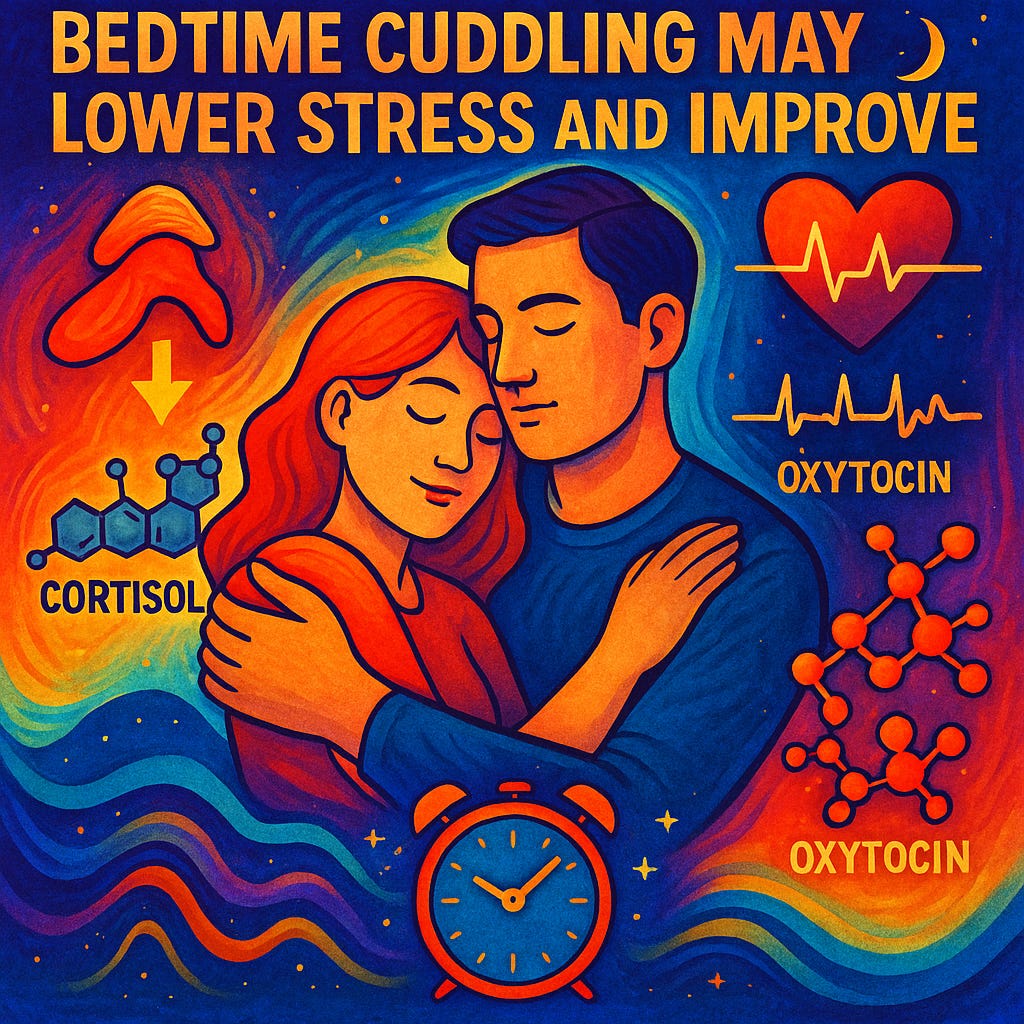Bedtime Cuddling May Lower Stress and Improve Sleep in Adults
A meta review of six adult studies suggests that brief skin-to-skin contact, cuddling, or sleeping close to a partner at bedtime may reduce stre
A review of six adult studies suggests that brief skin-to-skin contact, cuddling, or sleeping close to a partner at bedtime may reduce stress hormone levels, lower blood pressure and heart rate reactivity, and improve certain aspects of sleep quality. These benefits appear strongest for people with lower attachment security, and they don’t seem to disru…
Keep reading with a 7-day free trial
Subscribe to Just Healthcare to keep reading this post and get 7 days of free access to the full post archives.


